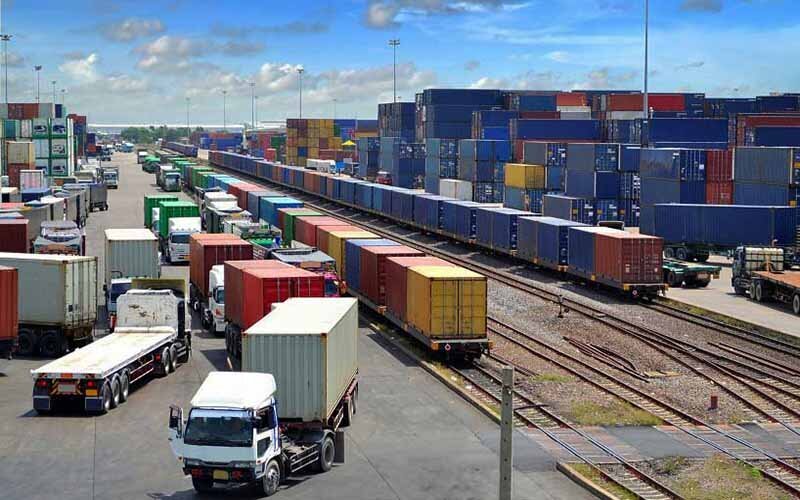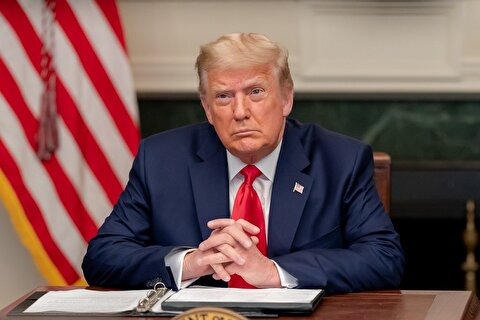
Iran’s annual non-oil exports could reach $100b

If the government consults with the private sector in the export sector, we can achieve the last year's export figures and even more, otherwise reaching this goal will be very difficult," Jamshid Nafar said on Monday.
Referring to the downward trend in the exports in the first month of the current Iranian calendar year (started on March 20), Nafar said: "In Farvardin [the first Iranian calendar month], the figure has only reached $1.6 billion, which is perfectly normal considering the problems caused by the coronavirus outbreak, the problem will be solved by the opening of the borders.”
"Our main problems in exports are the lack of infrastructure, problems related to various directives and management issues, and if we want to increase the value of exports, we must find solutions to these problems," he said.
Increasing non-oil exports to the neighboring countries is one of the major plans that the Iranian government is pursuing in the current Iranian calendar year.
Earlier this month, First Vice-President Es'haq Jahangiri called for developing non-oil exports as the only way for realizing the motto of the surge in production.
“The Foreign Affairs Ministry should provide the necessary bases for the development of [non-oil] exports by expanding and strengthening economic diplomacy,” he said in a meeting on reviewing ways of boosting economic relations with the neighboring countries and supporting non-oil exporters.
Iran shares border with fifteen countries, namely the United Arab Emirates, Iraq, Turkey, Afghanistan, Pakistan, Russia, Oman, Azerbaijan, Turkmenistan, Kuwait, Qatar, Kazakhstan, Armenia, Bahrain, and Saudi Arabia.
Emphasizing that 15 neighboring countries and countries such as China and India and Eurasian members should be targeted as the most important export destinations of the country, Jahangiri called on the Ministry of Foreign Affairs and other relevant agencies to strengthen economic diplomacy and focus on these export destination countries to provide the necessary infrastructure for the development of exports to these nations.
As announced by the head of Islamic Republic of Iran Custom Administration (IRICA), despite the U.S. sanctions Iran managed to export commodities to 128 countries in the past Iranian calendar year.
According to Mehdi Mir-Ashrafi, Asian countries account for over 70 percent of Iran’s foreign trade and Europe is the Islamic Republic’s second-biggest trade partner.
Iran exported non-oil commodities to 40 European countries, 21 Asian countries, 28 African countries, and 12 American countries, while importing from 41 European countries, 31 Asian countries, 12 American countries, and 11 countries in Africa.
The IRICA has put the country’s total foreign trade in the past year at $85.107 billion, noting that of the mentioned total figure the share of Iran’s exports was $41.37 billion while the imports stood at $43.737 billion.
The total weight of the country’s foreign trade was reported to be 169.302 million tons.


Alba Discloses its Financial Results for the Second Quarter and H1 of 2025

US slaps tariffs on 1-kg, 100-oz gold bars: Financial Times

Copper price slips as unwinding of tariff trade boosts LME stockpiles

Codelco seeks restart at Chilean copper mine after collapse

NextSource soars on Mitsubishi Chemical offtake deal

Australia weighs price floor for critical minerals, boosting rare earth miners

Uzbek gold miner said to eye $20 billion value in dual listing

BHP, Vale offer $1.4 billion settlement in UK lawsuit over Brazil dam disaster, FT reports

Hudbay snags $600M investment for Arizona copper project

Zimbabwe labs overwhelmed as gold rally spurs exploration, miner says

Cochilco maintains copper price forecast for 2025 and 2026

Adani’s new copper smelter in India applies to become LME-listed brand

HSBC sees silver benefiting from gold strength, lifts forecast

Mosaic to sell Brazil potash mine in $27M deal amid tariff and demand pressures

Samarco gets court approval to exit bankruptcy proceedings

Hudbay snags $600M investment for Arizona copper project

Discovery Silver hits new high on first quarterly results as producer

Trump says gold imports won’t be tariffed in reprieve for market

AI data centers to worsen copper shortage – BNEF

Cochilco maintains copper price forecast for 2025 and 2026

Adani’s new copper smelter in India applies to become LME-listed brand

HSBC sees silver benefiting from gold strength, lifts forecast

Mosaic to sell Brazil potash mine in $27M deal amid tariff and demand pressures

Samarco gets court approval to exit bankruptcy proceedings

Hudbay snags $600M investment for Arizona copper project

Discovery Silver hits new high on first quarterly results as producer

Trump says gold imports won’t be tariffed in reprieve for market

AI data centers to worsen copper shortage – BNEF














